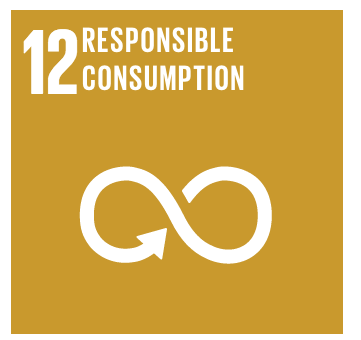Targets
- Implement the 10-year framework of programmes on sustainable consumption and production, all countries taking action, with developed countries taking the lead, taking into account the development and capabilities of developing countries
- By 2030, achieve the sustainable management and efficient use of natural resources
- By 2030, halve per capita global food waste at the retail and consumer levels and reduce food losses along production and supply chains, including post-harvest losses
- By 2020, achieve the environmentally sound management of chemicals and all wastes throughout their life cycle, in accordance with agreed international frameworks, and significantly reduce their release to air, water and soil in order to minimize their adverse impacts on human health and the environment
- By 2030, substantially reduce waste generation through prevention, reduction, recycling and reuse
- Encourage companies, especially large and transnational companies, to adopt sustainable practices and to integrate sustainability information into their reporting cycle
- Promote public procurement practices that are sustainable, in accordance with national policies and priorities
- By 2030, ensure that people everywhere have the relevant information and awareness for sustainable development and lifestyles in harmony with nature
- Support developing countries to strengthen their scientific and technological capacity to move towards more sustainable patterns of consumption and production
- Develop and implement tools to monitor sustainable development impacts for sustainable tourism that creates jobs and promotes local culture and products
- Rationalize inefficient fossil-fuel subsidies that encourage wasteful consumption by removing market distortions, in accordance with national circumstances, including by restructuring taxation and phasing out those harmful subsidies, where they exist, to reflect their environmental impacts, taking fully into account the specific needs and conditions of developing countries and minimizing the possible adverse impacts on their development in a manner that protects the poor and the affected communities

